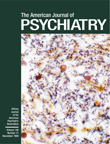Sublingually Administered Fluoxetine for Major Depression in Medically Compromised Patients
Mr. A was a 56-year-old, married Caucasian man with four children who was admitted to the hospital after a crush injury. Before the accident, Mr. A was a high-functioning individual with no medical or psychiatric problems. His stay in the hospital was complicated with multiple medical and surgical problems, including a sigmoid resection, a cholecystotomy, and a gastrointestinal fistula. During his recuperation, Mr. A became depressed, so a consultant psychiatrist became involved in his care. He was diagnosed with major depressive disorder, requiring treatment with antidepressant pharmacotherapy. Mr. A was unable to ingest pills orally because of his multiple gastrointestinal problems; therefore, he was given fluoxetine in liquid form sublingually by using a dropper administered by a trained staff member. Treatment was initiated as 10 mg/day sublingually (liquid fluoxetine=20 mg/5 ml), and the dose was gradually increased to 20 mg/day.Mr. A responded to sublingually administered fluoxetine, and his depressive symptoms resolved within 4 weeks; he had improvements in mood, affect, and the activities of daily living as well as social interactions. Four weeks after the treatment was initiated, his plasma fluoxetine and norfluoxetine levels were measured and found to be in the lower end of the therapeutic range (fluoxetine=47 ng/ml and norfluoxetine=52 ng/ml). Mr. A was maintained with sublingual fluoxetine treatment for 9 weeks, but he was switched to oral administration of the medication as a result of improvement in his medical condition. Mr. A remained psychiatrically stable during the rest of his hospital stay, and he was eventually discharged while receiving oral fluoxetine treatment with outpatient instructions.Mr. B was a 52-year-old, married Caucasian man with one child who was admitted to the hospital surgical floor after a motor vehicle accident. In the operating room, surgeons performed abdominal decompression with the placement of a J-tube, surgical repair of the mesenteric system, and a splenectomy. Mr. B’s hospital stay was complicated by the formation of an enterovesicular fistula. Shortly after his admission to the hospital, Mr. B became clinically depressed and had psychomotor retardation and feelings of hopelessness. He was diagnosed with major depressive and generalized anxiety disorders by a psychiatrist. Because of his gastrointestinal problems, Mr. B was unable to take any medications orally. Sublingual fluoxetine treatment was initiated with a dose of 10 mg/day, and the dose was gradually increased to 20 mg/day. Within 4 weeks, Mr. B became more verbal and interactive, with improved sleep and appetite. His serum fluoxetine and norfluoxetine levels were within a therapeutic range after 4 weeks of treatment (fluoxetine=62 ng/ml and norfluoxetine=78 ng/ml). Fluoxetine was eventually switched to the tablet form as a result of improvement in Mr. B’s medical condition. He was discharged to a rehabilitation facility while receiving oral fluoxetine treatment.
References
Information & Authors
Information
Published In
History
Authors
Metrics & Citations
Metrics
Citations
Export Citations
If you have the appropriate software installed, you can download article citation data to the citation manager of your choice. Simply select your manager software from the list below and click Download.
For more information or tips please see 'Downloading to a citation manager' in the Help menu.
View Options
View options
PDF/EPUB
View PDF/EPUBGet Access
Login options
Already a subscriber? Access your subscription through your login credentials or your institution for full access to this article.
Personal login Institutional Login Open Athens loginNot a subscriber?
PsychiatryOnline subscription options offer access to the DSM-5-TR® library, books, journals, CME, and patient resources. This all-in-one virtual library provides psychiatrists and mental health professionals with key resources for diagnosis, treatment, research, and professional development.
Need more help? PsychiatryOnline Customer Service may be reached by emailing [email protected] or by calling 800-368-5777 (in the U.S.) or 703-907-7322 (outside the U.S.).

